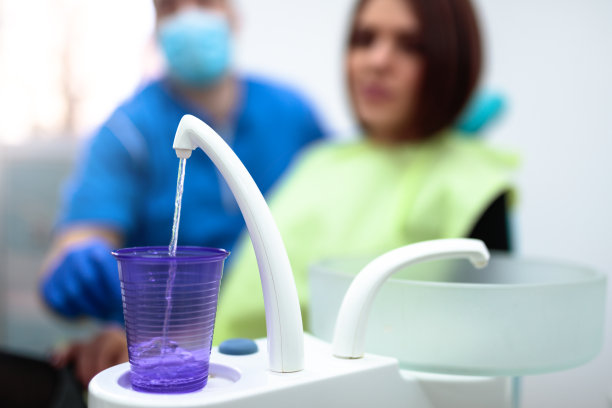Essential Precautions You Should Take Before and After Dental Filling to Ensure Optimal Oral Health
Summary: Dental fillings are essential for maintaining oral health, especially when cavities or damage occur. Taking the right precautions before and after the procedure can greatly influence the outcome and ensure optimal healing. This article discusses four critical aspects to consider: preparing for your appointment, post-procedure care, dietary considerations, and when to seek further assistance. By adhering to these guidelines, patients can enhance their oral health and experience less discomfort during the recovery process. Each aspect highlights specific actions and tips, equipping individuals with the knowledge they need to navigate dental fillings effectively.
1. Preparing for Your Dental Appointment

Before undergoing a dental filling, it is crucial to prepare adequately for your appointment. This preparation starts with ensuring that you have a comprehensive understanding of the procedure. Discuss with your dentist about the type of filling material to be used, the duration of the process, and any potential risks. Being informed can significantly reduce anxiety and make the appointment smoother.
Additionally, it is advisable to arrange for transportation if you are receiving sedation. Depending on the level of sedation used during the filling, you may not be able to drive yourself home afterward. Planning ahead can prevent unnecessary stress post-procedure and allows for a more relaxed recovery at home.
Lastly, ensure that you maintain good oral hygiene leading up to the appointment. Brush and floss your teeth thoroughly to minimize bacteria in the mouth, contributing to a more sterile environment during the filling procedure. This will also help in making the treatment more comfortable and efficient.
2. Post-Procedure Care for Optimal Recovery
After receiving a dental filling, following proper post-care guidelines is essential to ensure optimal recovery. One of the immediate steps to take is to monitor the numbness in your mouth if local anesthesia was used. It鈥檚 important to avoid eating or drinking until the numbness wears off to prevent accidentally biting your tongue or cheek.
Managing discomfort is also a crucial aspect of post-procedure care. Mild pain or sensitivity may occur after the local anesthesia wears off. Over-the-counter pain relief medications can help alleviate this discomfort. However, if the pain persists beyond a few days or worsens, it is important to contact your dentist for advice.
Practice gentle oral hygiene in the days following the procedure. While it is important to keep the area clean, be careful not to irritate the filling site. Use a soft toothbrush and be gentle while brushing near the filling to avoid sensitivity or discomfort.
3. Dietary Considerations After Dental Filling
Your diet plays a significant role in recovery after a dental filling. In the hours immediately following the procedure, it鈥檚 recommended to stick to soft foods to prevent any damage to the filling or irritation to sensitive areas in the mouth. Foods such as yogurt, mashed potatoes, or smoothies can be ideal during this recovery phase.
Avoid sticky, hard, or crunchy foods for at least 24 hours after the filling. These types of foods can dislodge or damage the filling, leading to further dental issues. It鈥檚 also essential to stay away from very hot or cold foods, as they may cause sensitivity in the newly filled tooth.
Hydration is essential, but be mindful of your beverage choices. Avoid alcohol and caffeinated drinks for the first day. Alcohol can interact with any pain medications you might be taking, and caffeine can cause dehydration, in turn hindering the healing process.
4. When to Seek Further Assistance
Although most dental filling procedures go smoothly, knowing when to reach out to your dentist is crucial for ongoing oral health. If you experience excessive pain or discomfort that does not subside with over-the-counter medications, it may be a sign of complications, such as an infection or a high filling that requires adjustment.
Furthermore, if you notice any changes in the filling, such as cracks or if it becomes loose, it is essential to make an appointment with your dentist promptly. Ignoring these issues can lead to further decay or damage to the tooth.
Lastly, keep an eye out for signs of allergic reactions, such as rashes or swelling, particularly if you have concerns about the materials used in your filling. Promptly contacting your dentist in these situations can help manage any issues effectively and ensure your continued oral health.
Summary:
In conclusion, being proactive and informed about the procedures surrounding dental fillings can significantly enhance your experience and outcomes. From preparing for your appointment to knowing how to care for a filling and recognizing warning signs, each aspect plays a vital role in maintaining optimal oral health. Following these precautions will not only aid in recovery but set the stage for a healthier mouth.
This article is compiled by Vickong Dental and the content is for reference only.



